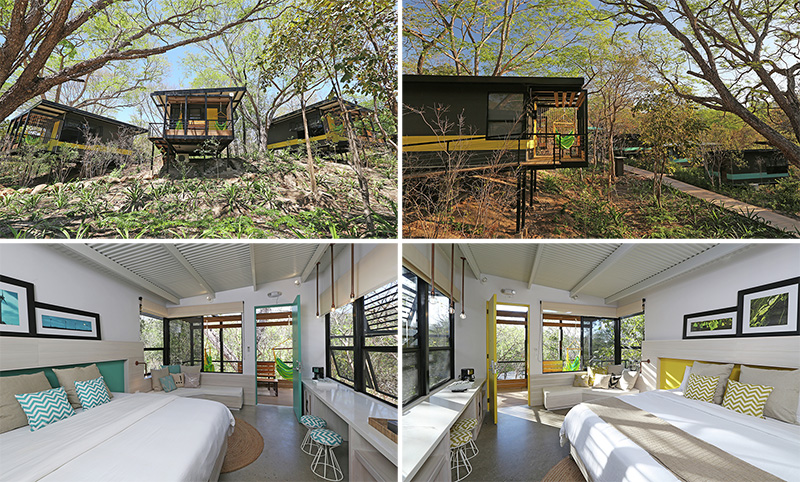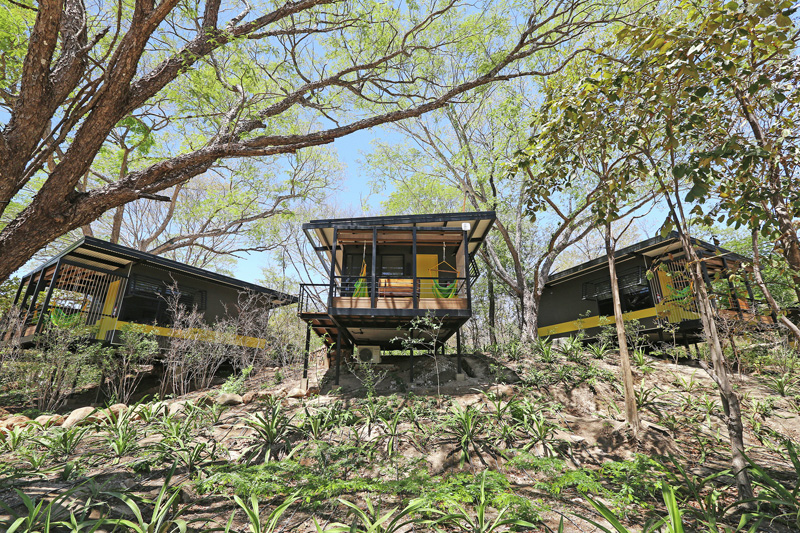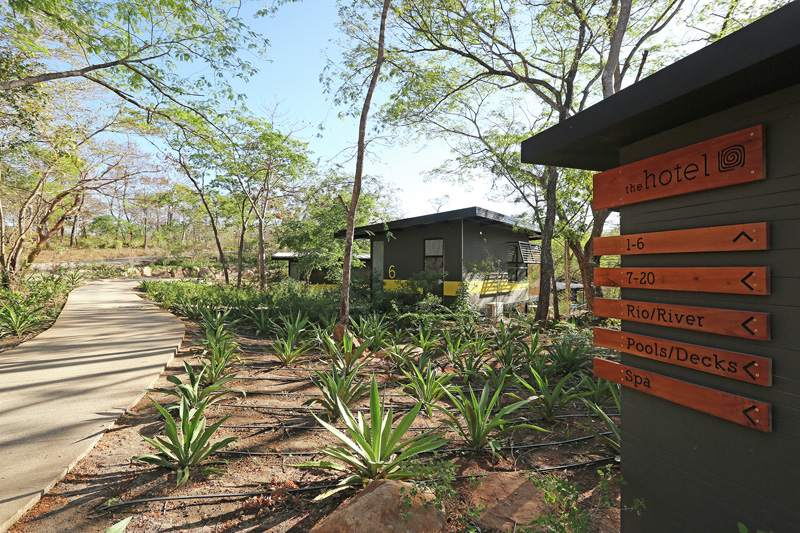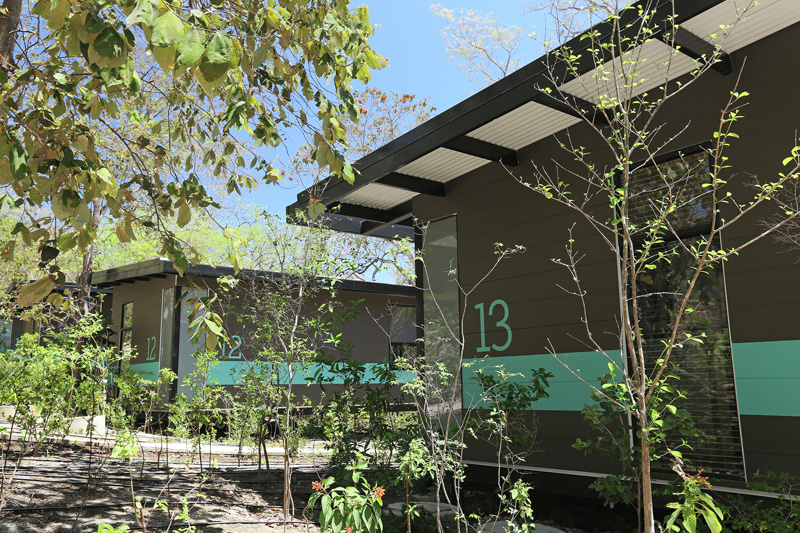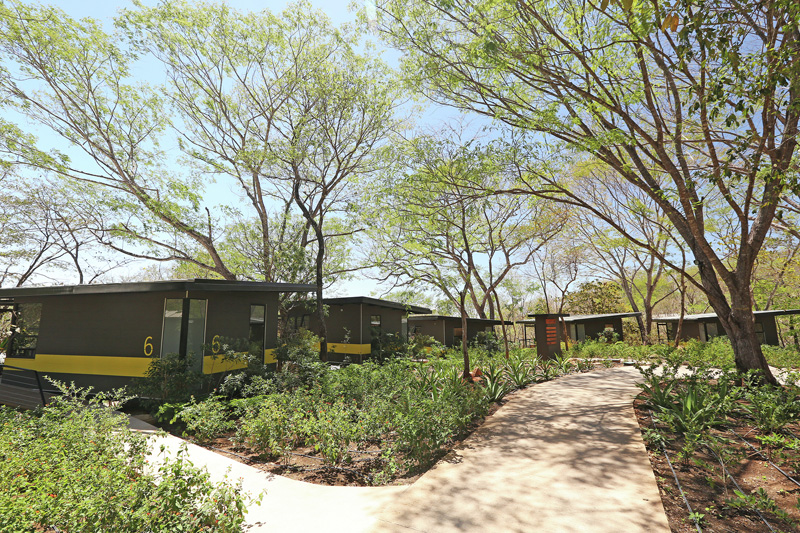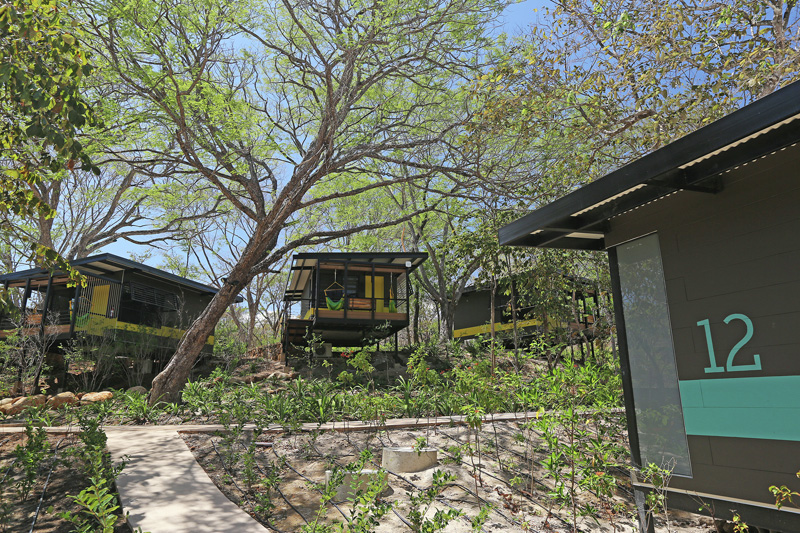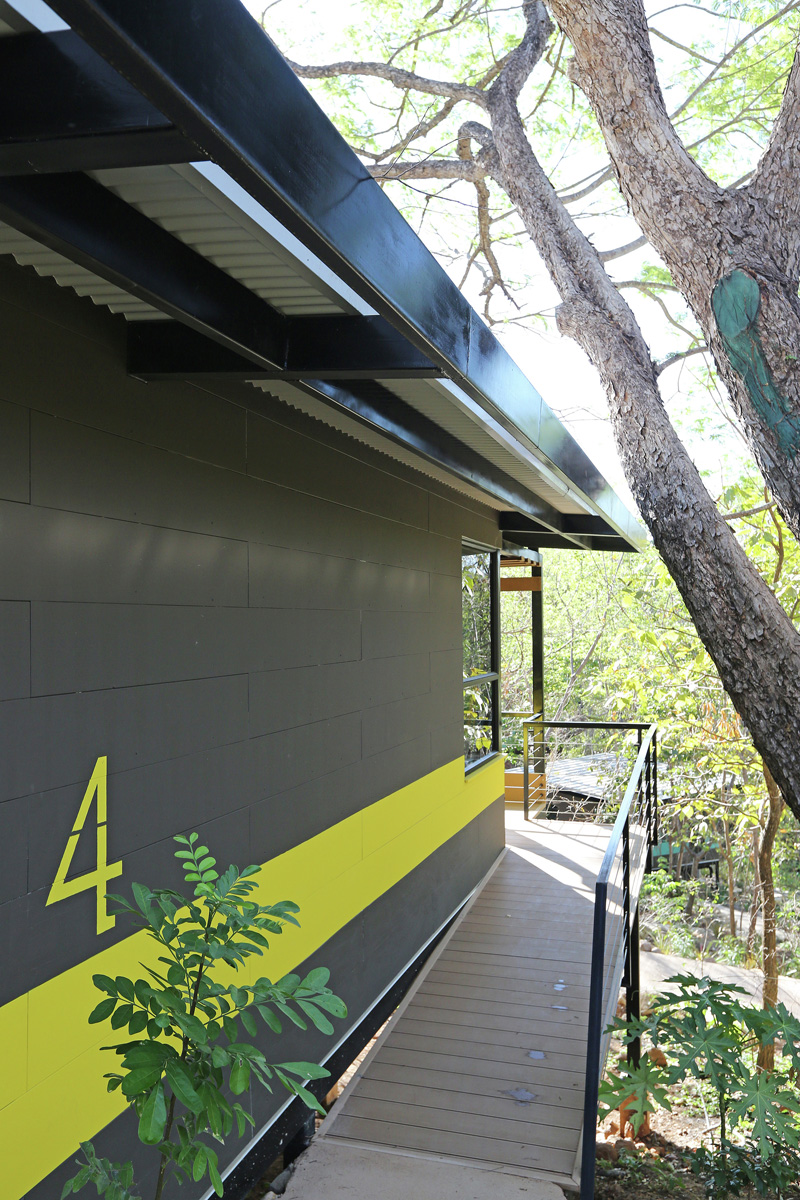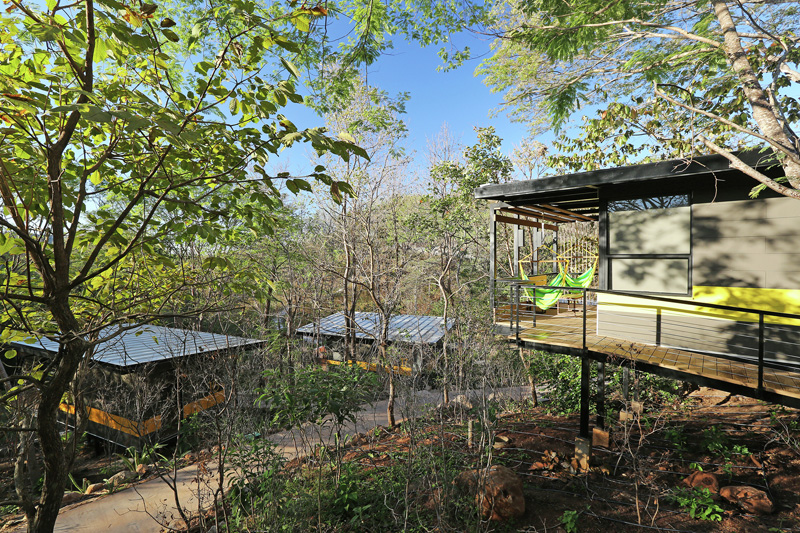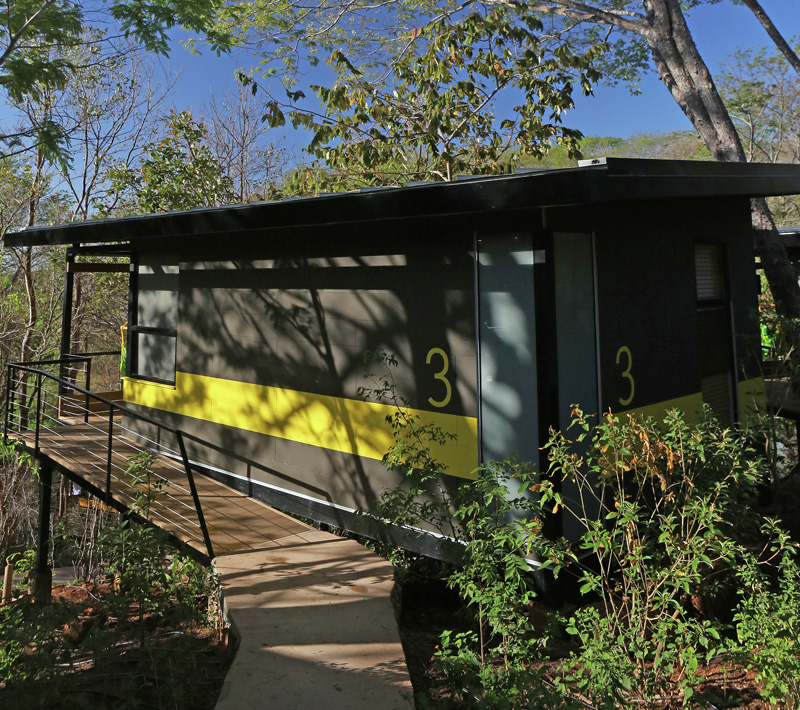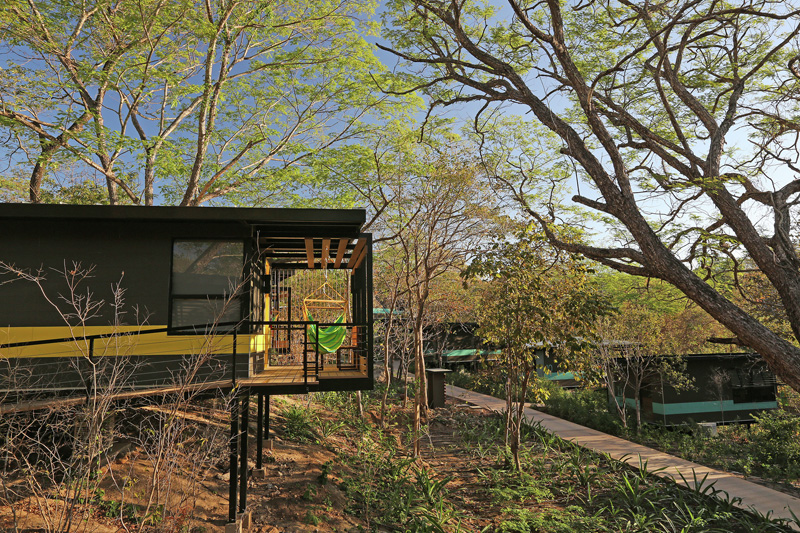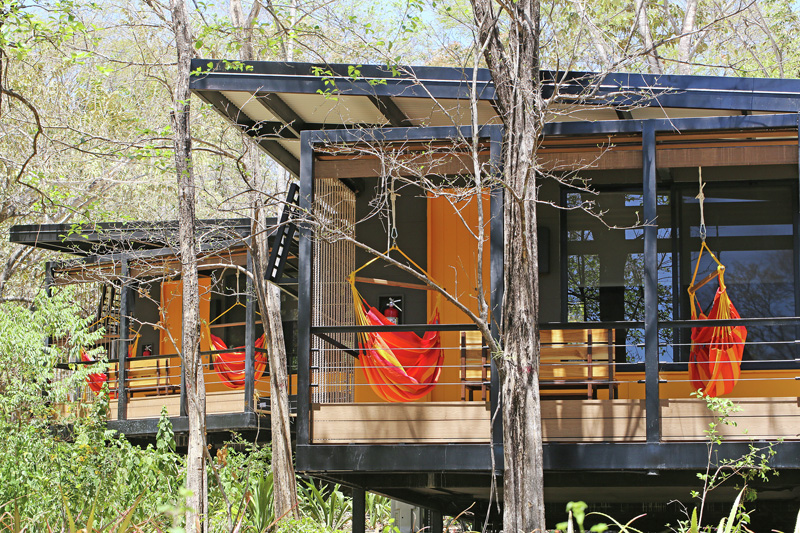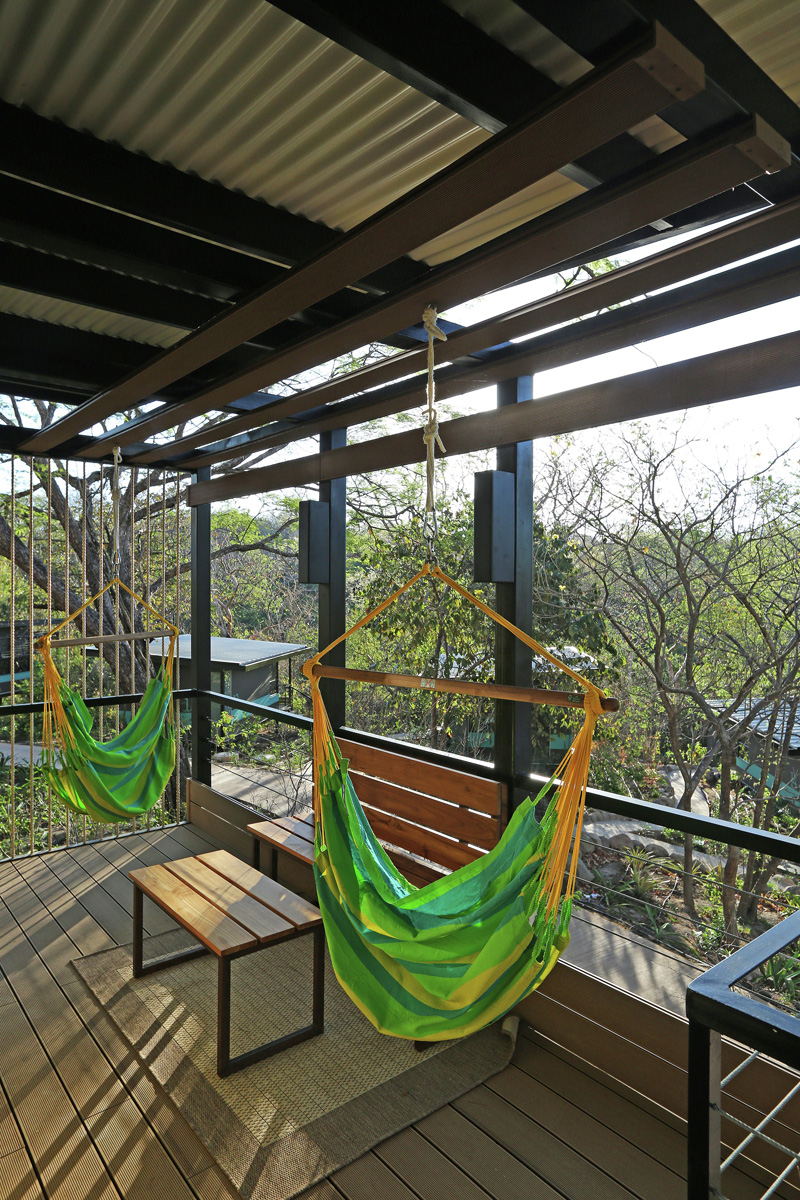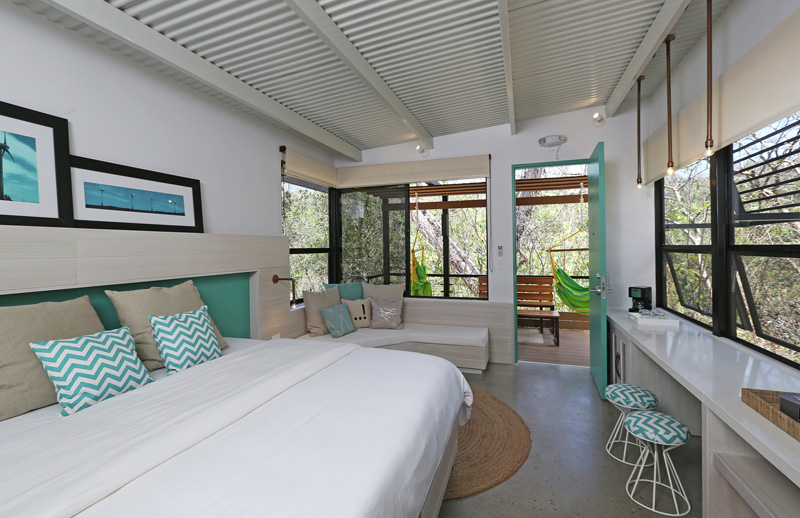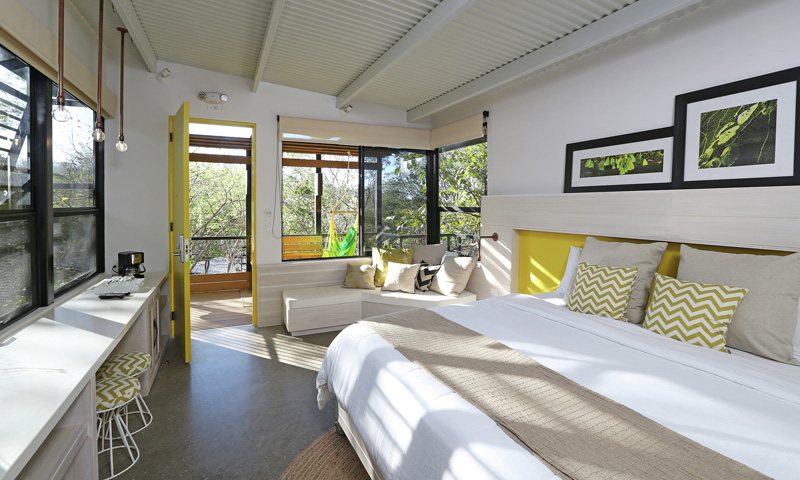When Project CR+d designed the Rio Perdido Resort, a 20-room boutique hotel in Costa Rica, they took great care to act in harmony with the natural environment, by disturbing the site as little as possible.
The designer’s description
The Rio Perdido is a boutique bungalow hotel that was recently added to an existing thermal water tourist resort that lacked the capacity to host visitors for more than daylight hours.
The design goal while conceptualizing the project was a creation of spaces that embrace and invoke sophistication while complementing the landscape and acting in harmony with the natural environment – a place where jungle meets luxury.
Nature being the main inspiration of the concept, an intimate connection between building and land in the site planning process became the projects driving force. Existing trees defined horizontal spacing (not one tree was removed from the site) while the natural topography initiated vertical separation (no grading was performed), creating left over semi-open spaces for trails, landscape and rest.
Three meandering rows of bungalows sit within the breaks in flora. Each bungalow meets natural contours at the rear and juts via ramps or paths to entry decks floating above the sloping ground. This siting strategy enabled a 360º experience, positioning each guest in his or her own unique spot within the resort.
Due to the remote project location in a country where various logistical and labor related difficulties often affect infrastructural dependent time frames and deadlines, it was clear that the introduction of an alternative building system was necessary.
The bungalows themselves are simple volumes of rudimentary prefabricated construction parts – a model unit was built at a warehouse near San Jose prior to final fabrication.
Pre-poured concrete point foundations, precut steel structural members, pre-tensioned concrete floor panels, sandwiched insulated walls and roofs were all collected, cut and poured off-site before being delivered via flat bed as a kit-of-parts and assembled in place on-site.
The architectural experience is expressed through color, textures, finish, light, location and direct contact with nature.
From the interior outward, the bungalows are meant to reflect the freshness and serenity that the trees evoke, bringing the sound of monkeys and insects to the balcony terrace, framing the sunset and freezing the motion and sound of the wind in the tops of meddling trees.
The three bungalow blocks of earthy gray tones are each emphasized by an inspired accent color relating to the river, rocks and trees of the surrounding area respectively – abstractly placing these bungalows in the tropical dry forest while permitting guests points of reference within the resort.
A transformation from the rugged exterior into a “soft” interior space of rest and relax is expressed with a range of white and light colors, polished concrete, quartz counters, custom copper light fixtures and rope textures.
All furniture and accessories were designed exclusively for each space – including 1×2 meter beds that roll together to create a large king, and a third bed that slides from underneath that could accommodate an additional guest or child. Windows frame views of the sky, vegetation and wildlife emphasizing the where jungle meets luxury experience.
